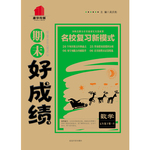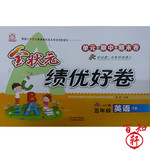题目内容
I’ll ________ with my writing till the bell rings.
- A.carry out
- B.carry on
- C.carry off
- D.carry away

 期末好成绩系列答案
期末好成绩系列答案 99加1领先期末特训卷系列答案
99加1领先期末特训卷系列答案 百强名校期末冲刺100分系列答案
百强名校期末冲刺100分系列答案 好成绩1加1期末冲刺100分系列答案
好成绩1加1期末冲刺100分系列答案 金状元绩优好卷系列答案
金状元绩优好卷系列答案
Ammie was only 18 months old when she had an accident that scarred her for life. While her mother was away for a moment , the curious baby reached up to a hot kettle in the kitchen and poured boiling water all over her body.
An ambulance was called and rushed the baby to nearby hospital . About 20 percent of Ammie’s body had been burned and all of her burns were third degree. The doctors could tell immediately that Ammie’s best chance of survival was specialized burns unit some miles away at Glasgow Royal hospital.
There , using tissue taken from unburned areas of Ammie’s body, surgeons performed complex skin grafts(植皮手术)to close her wounds and control her injuries , an operation that took about six hours. Over the next 16 years, Ammie underwent(经历)12 more operations to repair her body.
When she started school at the age of 4 , other pupils made cruel comments or simply wouldn’t play with her . “I was the only burned child in the street , the class and the school,” she recalls, “Some children refused to become friends with me because of that.”
Today , age 17 , Ammie can only ever remember being a burned person with scars ; pain is a permanent part of her life, she is still awaiting two further operations. Yet she is a confident, outgoing teenager who offers inspiration and hope to other young burnt victims.
Ammie’s parents have been a great support to her. “They told me of people had a problem with my burns, the problem with my burns, the problem was theirs not mine,” says Ammie. “They taught me to cope with other people’s reactions and constantly reminded me I was valued and loved.” Ammie’s positive attitude to life means she is often contacted by burns charities(慈善机构), helping younger patients build their self-respect to live with permanent scars.
Now she is a member the Scottish Burned Children’s Club. “Ammie provides so much encouragement for the younger ones. She is optimistic and outgoing and a perfect role model for them , ” say Donald Todd, chairman of the club.
This month , Ammie will join some younger children on a summer camp. “I’ll show them how to shrug off unkind stares from others , ” she says. Ammie loves wearing fashionable sleeveless tops(无袖上衣), and she plans to show the children at the summer camp that they can too. “I don’t go to great lengths to hide my scars , ” she says . “I gave up wondering how other people would react years ago.”
【小题1】Ammie was taken to Glasgow Royal hospital because .
| A.it was the nearest hospital to her home |
| B.it was the only hospital curing her burns |
| C.surgeons there were skilled at performing skin grafts |
| D.it was a local hospital excellent at treating burns |
| A.12 | B.13 | C.14 | D.15 |
| A.ignore | B.avoid | C.accept | D.tolerate |
| A.Shy, pessimistic and discouraged. |
| B.Strong-minded , optimistic and helpful. |
| C.Fashionable , sensitive and easygoing. |
| D.Careful , confident and intelligent. |
| A.Ammie had an accidents and had to do many operations. |
| B.Ammie was a brave gire after the accident. |
| C.Ammie helped many younger patients. |
| D.Ammie has a positive life through many operations. |
 foreigners. Suppose a foreign boy asks an English girl to go out with him and she says, “If I finish my work, I’ll meet you in the cafe at 7 o’clock.” Is she saying “yes” or “no” to his invitation?
foreigners. Suppose a foreign boy asks an English girl to go out with him and she says, “If I finish my work, I’ll meet you in the cafe at 7 o’clock.” Is she saying “yes” or “no” to his invitation? ers, “If we could pay you more, we would.” The use of the conditional here makes room for argument although the speaker is using the second conditional form, which shows improbability. So it is unlikely the workers will get their rise.
ers, “If we could pay you more, we would.” The use of the conditional here makes room for argument although the speaker is using the second conditional form, which shows improbability. So it is unlikely the workers will get their rise.